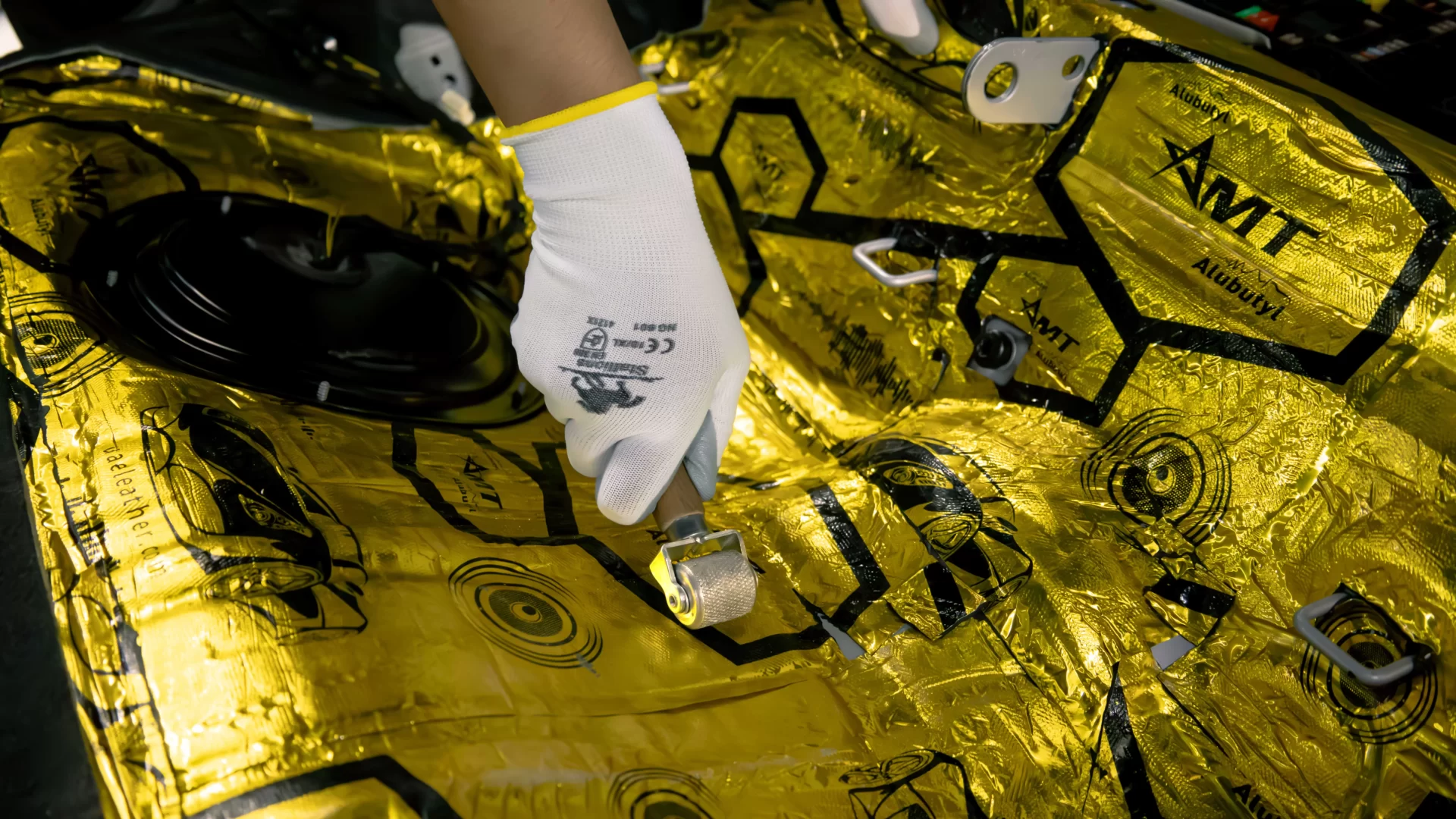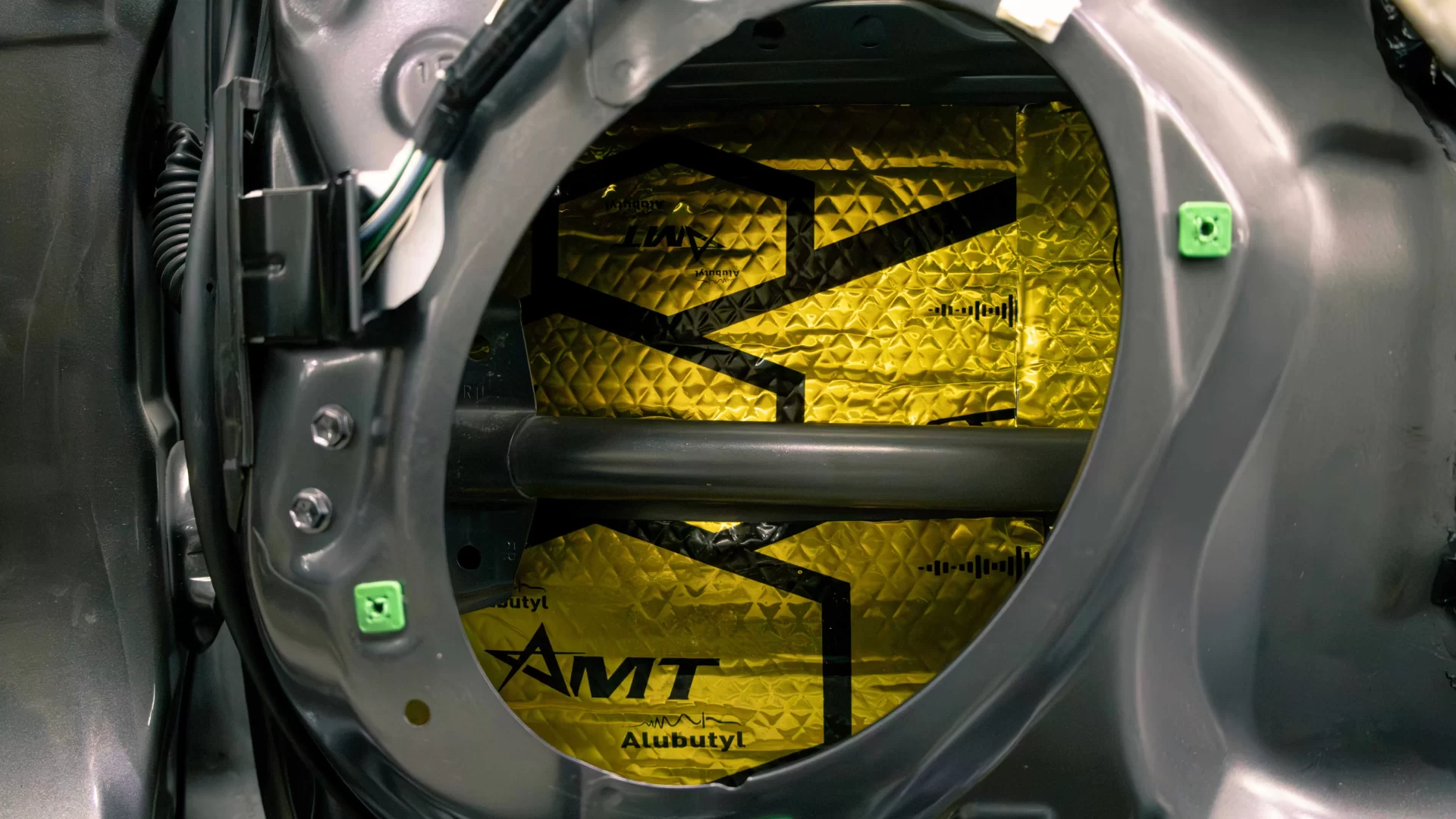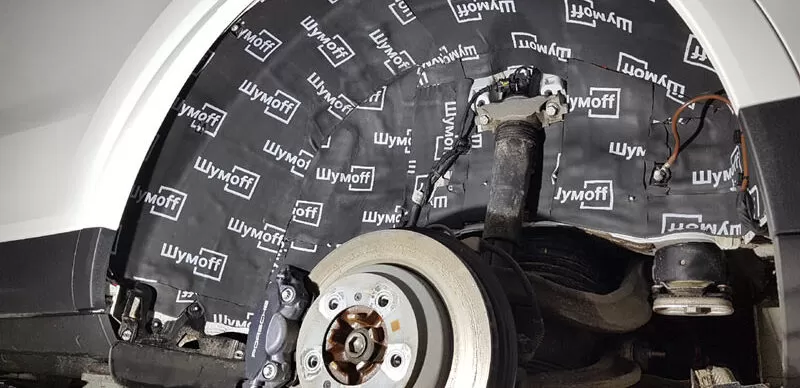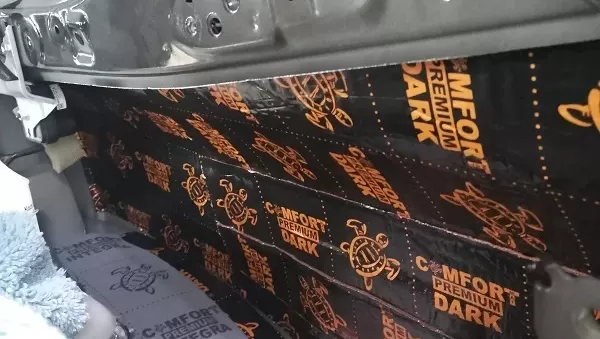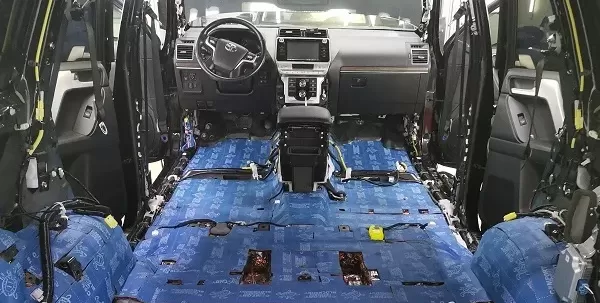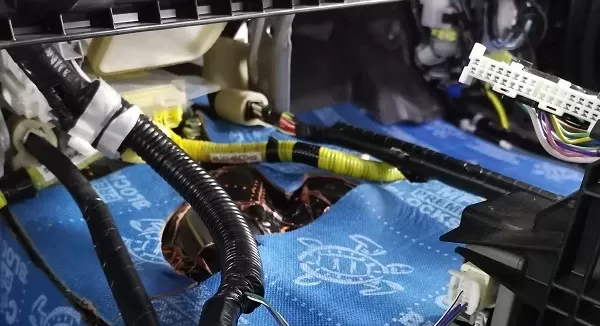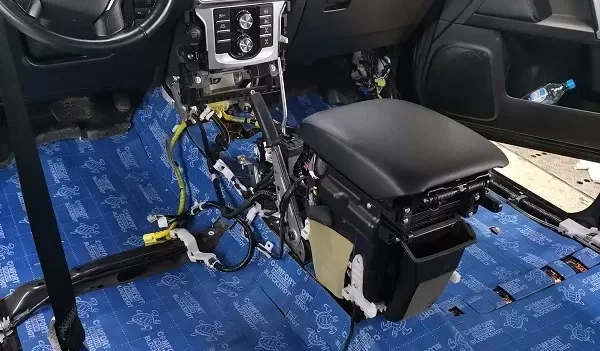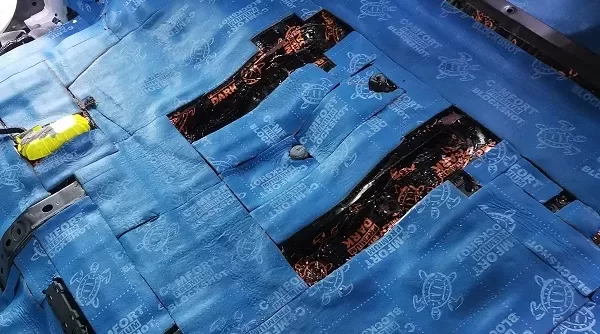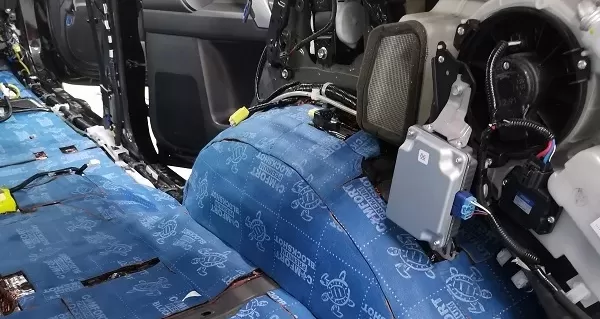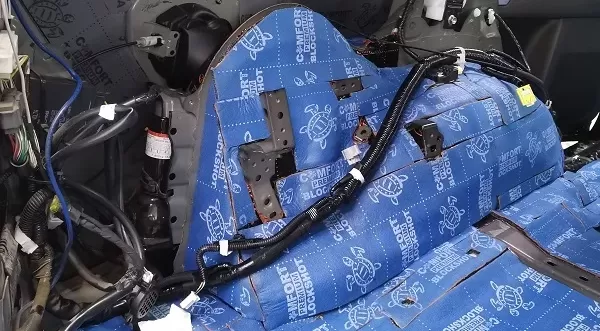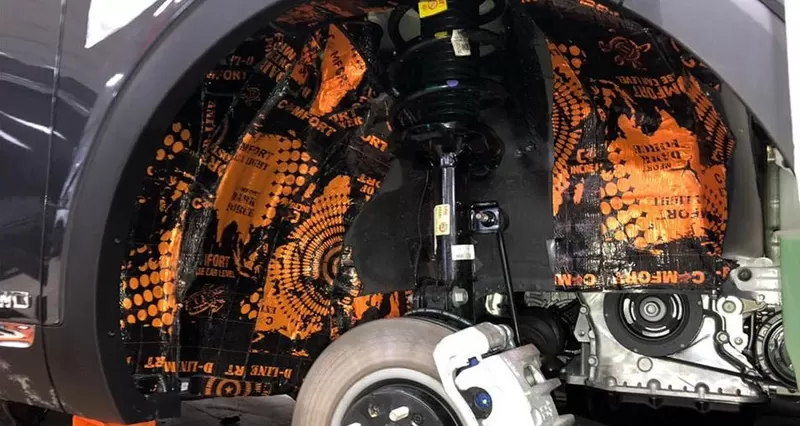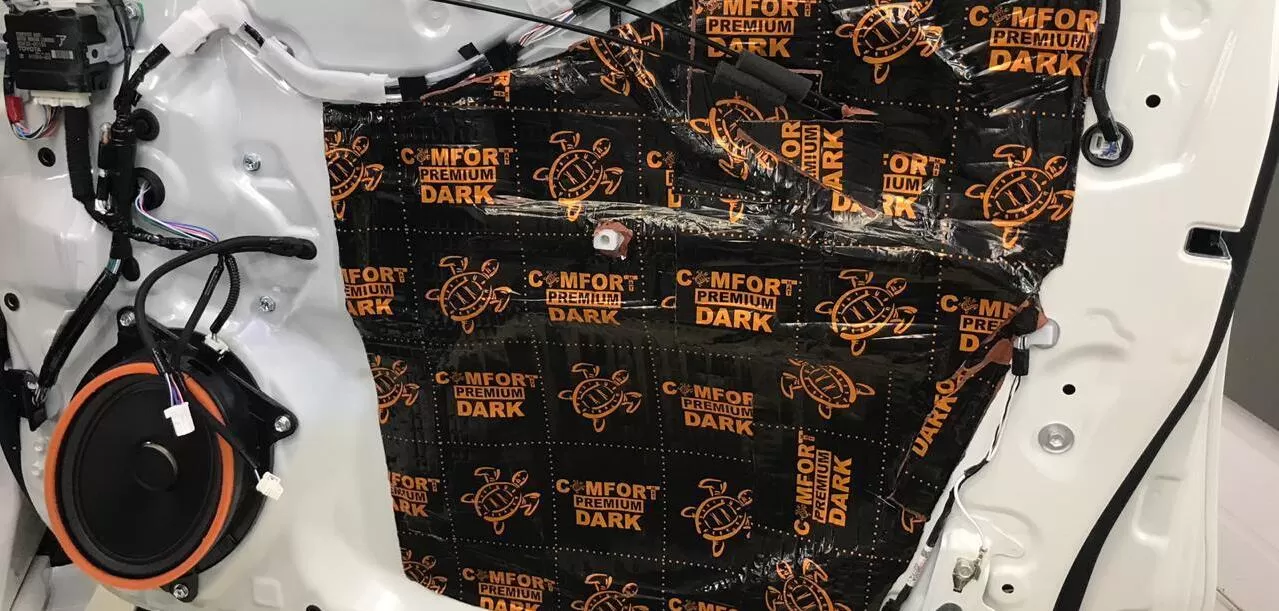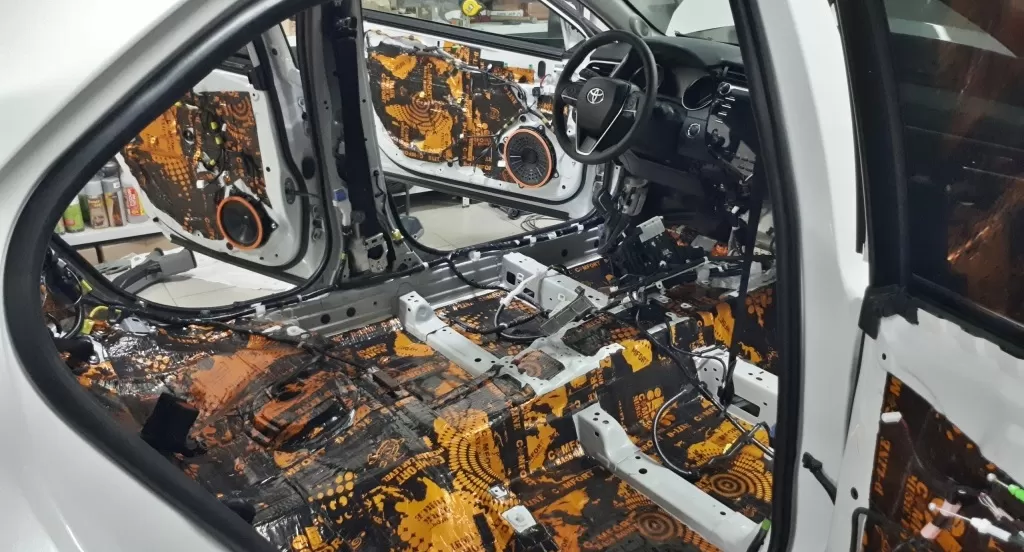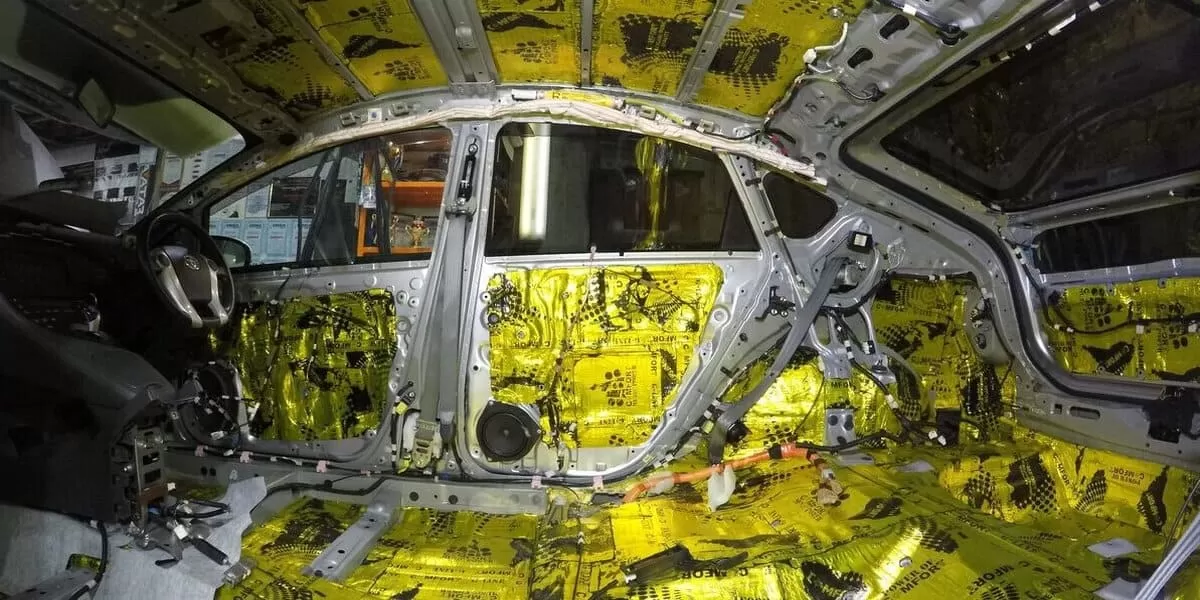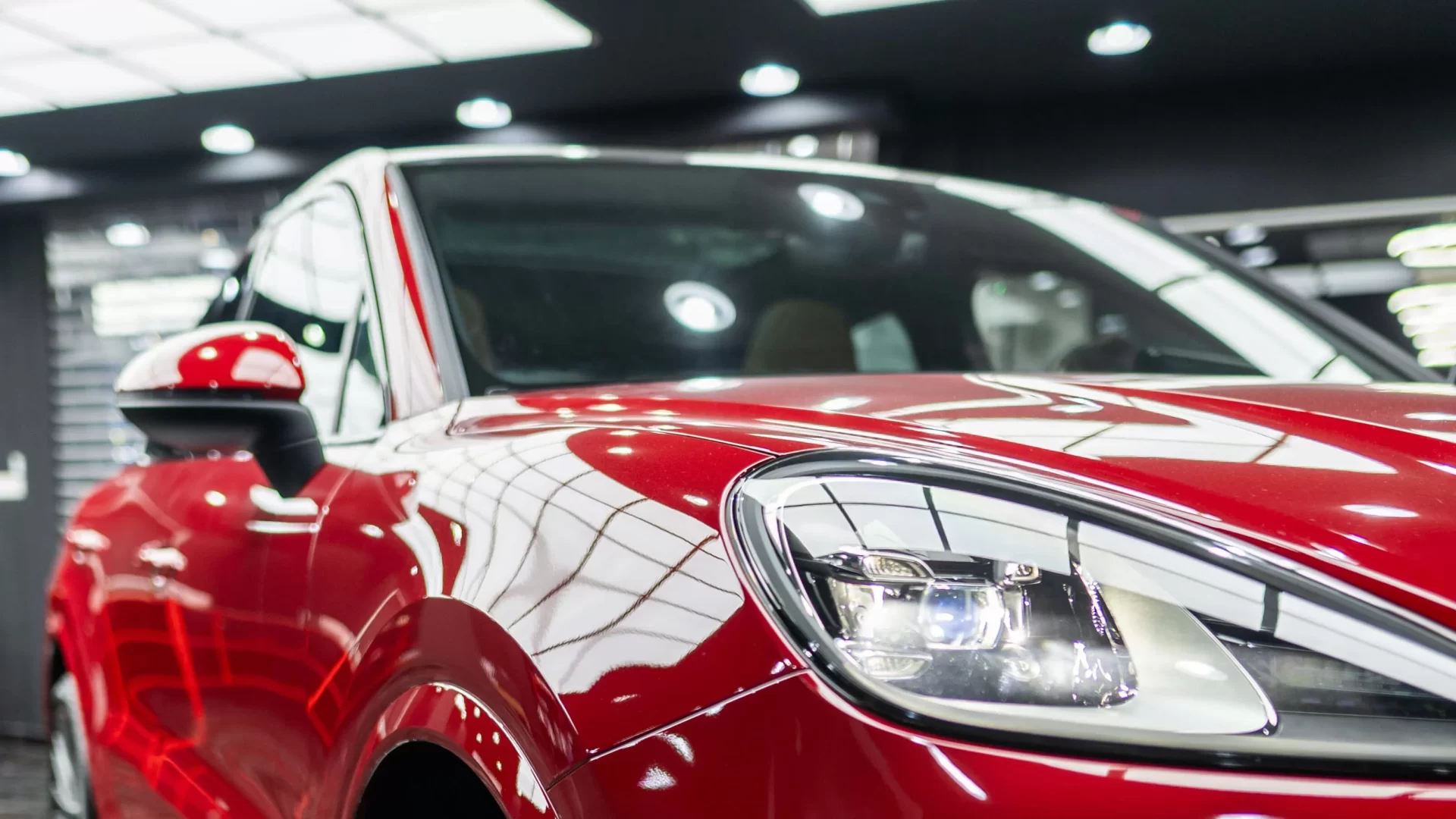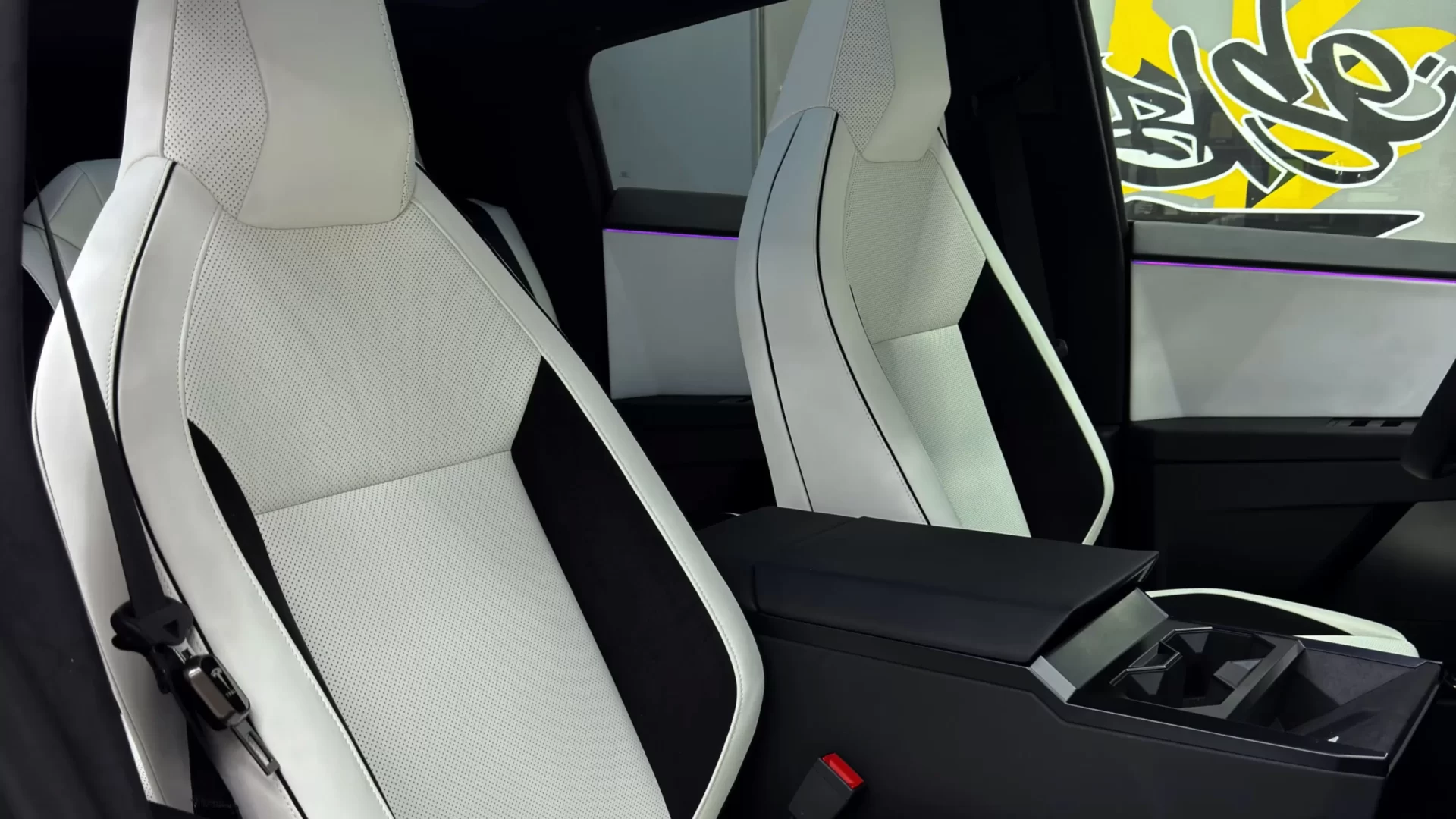Gallery
Car Sound Deadening in Dubai
Video gallery
Explore our work
Price
Time: 2 days
Time: 1 day
Time: 1 day
Time: 3 days
Time: 2-3 days
Time: 3-4 days
Reviews
write a reviewRelated Services
Our Team
Vehicle soundproofing in Dubai is a crucial feature: road noise, mechanical vibrations, and other surrounding sounds can compromise vehicle sound insulation. Typically, annoying and unwanted noise is caused by external sources, such as tire noise across different terrains, air resistance, and sound waves from gravel and debris. The level of noise also depends on vehicle vibrations caused by the engine, transmission, and suspension. In Dubai, external noise levels can reach dangerous levels, causing stress and distracting drivers from their tasks.
Interference from wind flow, road sounds, and air flow through and around the openings in the windows and doors can be heard through the gaps and cavities. This can further compromise comfort and reduce your chances of a quieter ride. Car soundproofing is the solution to eliminate road noise.
Benefits of Professional Car Sound Proofing
When talking about the advantages of professional car noise insulation, it is important to note that work performed in a high-quality car dealership is fundamentally different from independent DIY car soundproofing work. Professional car soundproofing can significantly enhance the driving experience.
A professional car detailing service is responsible for the result, and by attempting to soundproof the car yourself, the customer risks wasting time and money. In addition, high-quality car care centers use proven and tested products and materials, and when you buy DIY kits, you risk getting poor-quality materials.
Why Choose Us in Dubai
By selecting Desert Diamond to improve the sound insulation in your car, you are choosing:
- Transparent and honest pricing
- High-quality work by skilled technicians
- Fast execution within the shortest possible time
- Strict respect for agreements and deadlines
- Convenient service center location
Our Car Sound Proofing Process
Car soundproofing involves applying insulation mats to doors, floors, and the trunk, sealing gaps in windows and panels, and adding layers that absorb vibration and block road noise. These solutions are part of modern auto sound deadening, which not only blocks external noise but also improves the in-car acoustic balance.
- Our technicians begin by thoroughly cleaning the vehicle’s surfaces to ensure strong adhesion of the materials.
- They then apply a car sound deadening material mat to the floor, doors, roof, and trunk. Each layer of sound insulation is placed with care, reducing road noise and vibrations.
- After that, a heat sound deadening insulation mat is added, providing both noise dampening insulation and thermal protection. We use advanced and high-quality auto sound dampening materials.
- The result is improved sound quality, a quieter cabin, and better temperature control, as the car becomes more airtight and the air conditioning works more efficiently.
Pricing and Packages
At Desert Diamond, car soundproofing services have an initial cost starting from AED 5000. The final cost depends on the vehicle type, work complexity, selected products, and materials used.
Desert Diamond follows a transparent pricing policy: the price is calculated before work begins, and the service is performed only after the customer’s approval. A 5% VAT is added to the agreed amount.
Clients are always informed of the price in advance, eliminating any risk of unexpected overpayments.
Types of Vehicle Sound Deadening Materials
There are multiple types of sound deadening materials. Each material has its own properties and purpose:
- Acoustic Foam / Auto Audio Deadener Foam: This car sound insulation material effectively catches a large amount of sound, preventing echoes and reverberations inside the cabin and thereby improving car audio quality.
- Sound Deadening Sprays: Applied to interior panels to block noise, often used alongside a car sound deadening mat for maximum effect.
- Acoustic Panels: Able to capture and reduce sound energy effectively, acting as an insulation material for vehicle interiors.
- Butyl-Based Materials / Butyl automotive: Excellent for reducing vibrations and road noise, sometimes combined with aluminum foil layers for thermal and acoustic control.
- Mass-loaded Vinyl: A soft and dense material that can be easily deformed and used for vibration dampening material and sound-deadening insulation.
Soundproofing Service: Benefits of Car Sound Deadening
- High-quality audio noise insulation and dampening can reduce external road sounds, engine vibrations, and other unwanted disturbances. As a result, you’ll get a quiet cabin and a relaxed atmosphere.
- Primarily, soundproofing insulation systems reduce unwanted noise and vibrations, improving your driving experience. This way, the customer can listen to music without being distracted by other noises around them during their trip. Even if your car audio quality and in-car audio system are top-notch, you won’t fully enjoy the sound if unwanted noise enters the cabin; a proper sound deadener provides good automobile sound proof protection without completely isolating you from the outside world.
- The less car noise there is, the better the driver can concentrate on the road, and the less tired they become.
- Passengers in a soundproofed car interior experience less stress and fatigue.
- In the engine area, engine heat sound deadener insulation helps reduce noise and keeps heat from entering the cabin.
How to Choose the Best Car Sound Deadener Insulation
The appropriate professional soundproofing solution can be chosen based on the following factors:
- Interior and Exterior Examination: To find the best option for soundproofing your car, first assess the sources of noise in the interior (doors, floor, trunk, and gaps around the windows).
- Researching Available Options: It is then essential to compare materials in terms of effectiveness, considering their vibration-dampening and thermal insulation capabilities, as well as their soundproofing properties, including soundproofing mats, sprays, and panels.
- Professional Technicians: Trust your vehicle to the most skilled experts, delivering the best services in Dubai.
- Reviews: When searching for an expert car soundproofing service, always check the reviews. Positive feedback from clients is important.
Solutions can be tailored to the car’s specific needs, including the use of a 36 sqft car sound deadening mat or a 36 sqft car sound deadening layer, as well as MIL-STD-36 sqft car sound layers to insulate door, floor, and trunk areas.
Maintenance and Upkeep of Sound Deadening Solutions
Car sound proofing materials require regular maintenance to last as long as possible.
- Regular Inspection: Check for wear and tear.
- Keeping Vehicle Clean: Keep the car interior clean to avoid wear and tear on professional car soundproofing.
- Avoiding Extreme Conditions: Prevent materials from being exposed to high/cold temperatures or moisture.
- Timely Replacement: When soundproofing your car, remember that even the best materials must be replaced from time to time.
Typical Mistakes to Avoid During Car Soundproofing in Dubai
Many people make mistakes that negatively affect the final result. Here’s a brief review of the most common mistakes:
- Neglecting Gaps: Leaving gaps and openings unsealed can allow traffic noise to enter and reduce the effectiveness of your soundproofing.
- Using Low-Quality Soundproofing Materials: You get what you pay for, so it’s smarter to select the most reliable products, such as butyl automotive deadener, and rely on professional expert care.
- Wrong Installation: Wrong application of materials, such as car fender sound deadener or engine heat insulation mats, can significantly compromise noise reduction and vibration control.
- Ignoring Maintenance: It is worth investing money and time in regular inspections and maintenance.
- Forgetting Vehicle Needs: Every vehicle has specific requirements; for example, larger models may need additional measures like van sound proofing to achieve optimal sound insulation.

